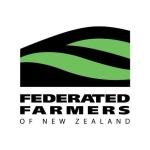What's bugging Federated Farmers?
While Federated Farmers is pleased the Environmental Protection Authority (EPA) has approved a biological control agent for the noxious moth weed, it believes some aspects of border management lack the same scientific rigour the EPA has demonstrated.
“Moth weed is the classic garden escapee but one that aggressively smothers and kills trees. It can poison people while its latex sap can burn exposed skin,” says Dr William Rolleston, Federated Farmers Vice-President and its spokesperson on plant pest management.
“More common in warmer areas, moth weed is as much a threat to conservation as it is to farm forestry. Being a native of South America you can describe it as the perfect noxious weed. It thrives in sun or shade, wetland or mangrove and can even tolerate drought.
“Eradication isn’t realistic, but the beetle Colaspis argentinensis, just approved for release, is our best option to keep it in check.
“The EPA has applied some rigour to approving Waikato Regional Council’s application, which Federated Farmers supported. It’s a rigour we hope will come from the Minister for Primary Industries independent review into the rules and processes for imported kiwifruit pollen.
“We hope this review will look wider at all pollen imports because Federated Farmers doesn’t want any door left ajar.
“Only 13 months ago, the old MAF was so confident in the import health standard for pollen, that it said there was no peer-reviewed scientific evidence pollen was a pathway for bacteria.
“Even to a layman, it doesn’t seem plausible pollen could transmit viruses and fungi but not bacteria. I am concerned a 2007 paper, ‘Plant pathogens transmitted by pollen’, may have unduly influenced MAF policy. This paper concluded that while certain viruses and fungi could be transmitted by pollen, “there are no…bacteria…that are pollen transmitted”.
“An absence of evidence should be treated differently by decision makers to evidence of absence. Categorical negatives are difficult to prove in science and should be treated with some suspicion.
“Having said that, this aspect of the import health standard also slipped past industry scrutiny.
“These are also big lessons to be learnt as MAF Biosecurity ponders the risk of PRRS in imported raw pork. Not to mention bee diseases not present in New Zealand but carried in honey overseas, such as European Foulbrood and the Israeli Acute Paralysis Virus.
“The Hon David Carter’s independent review into the rules and processes for imported kiwifruit pollen has wider implications, especially as industry negotiates Government Industry Agreements.
“Federated Farmers congratulates Minister Carter for announcing this review and we look forward to making a contribution towards it,” Dr Rolleston concluded.
